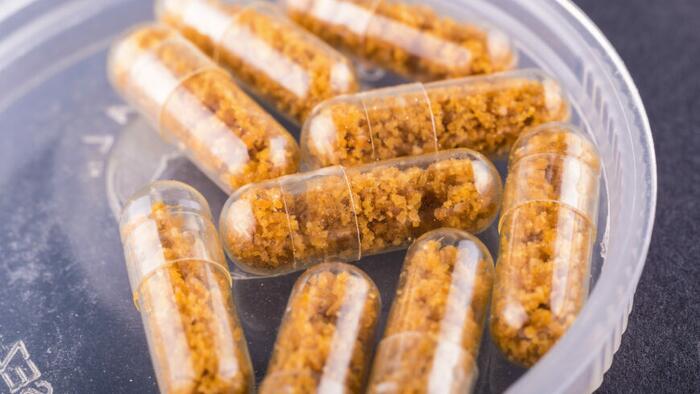
As gross as this sounds, the impact that fecal microbiota transplants have on patients with Clostridioides difficile (C. diff) infections is astonishing. And now, it comes in tablet form.
Clostridioides difficile (C. difficile) is a bacterium that can cause CDI, a potentially life-threatening disease resulting in diarrhea and significant inflammation of the colon. In the United States, CDI is associated with 15,000-30,000 deaths annually.
The intestinal tract contains millions of microorganisms, often referred to as the “gut flora,” or “gut microbiome.” Certain situations, such as taking antibiotics to treat an infection, may change the balance of microorganisms in the gut, allowing C. difficile to multiply and release toxins causing diarrhea, abdominal pain and fever, and in some cases, organ failure and death. Other factors that can increase the risk for CDI include age older than 65 years, hospitalization, a weakened immune system and a previous history of CDI. After recovering from CDI, individuals may get the infection again—often multiple times—a condition known as recurrent CDI. The risk of additional recurrences increases with each infection and treatment options for recurrent CDI are limited. The administration of fecal microbiota is thought to facilitate restoration of the gut flora to prevent further episodes of CDI.
Formerly, a product called Rebyota was used and administered rectally as a single dose. Rebyota is prepared from stool donated by qualified individuals. The donors and the donated stool are tested for a panel of transmissible pathogens, however, as Rebyota is manufactured from human fecal matter, it may carry a risk of transmitting infectious agents. In addition, Rebyota may contain food allergens; the potential for the product to cause adverse reactions due to food allergens is unknown.
It’s probably an improvement on this!
My dad had c-diff and was bedridden for months. I had a bunch of test & then donated a turd. They made a turd sludge and shot it up his nose (I’m assuming tube went to stomach). Dad cured like a miracle; I remind him once in awhile what a brave sacrifice I made. Pills 👍🏻.
— been better & had less (@unfreemarkets) May 9, 2023
Now the FDA has approved, Vowst, the first oral biologic drug for fecal microbiota that was shown in clinical trials to be as effective as fecal microbiota transplants given rectally. Biologic drugs are derived from blood, proteins, bacteria, and other living organisms.
Vowst—taken as a dose of four capsules for three consecutive days—is not free of risk. The donated human fecal matter is screened for transmissible pathogens before it is manufactured. However, as the news release pointed out, there is a possibility that donor stool used in the pill could be infected with infectious pathogens, as well as food allergens. The potential for adverse reactions caused by Vowst due to such allergens is unknown.
